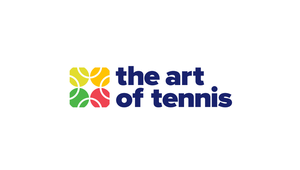Don’t think of a pink elephant

The words we use are important. Both the words we use to other people but also the words we use internally.
Any self aware tennis player knows that there is a constant dialogue that goes on in our heads when we play. This can range from negative, self doubting dialogue through to optimistic, confident dialogue. But what do we do if we have a problem with our game or keep making the same mistakes over and over? How do you self talk your way through something like this? What if you keep double faulting into the net over and over?
Most people will go straight to self talk such as “stop double faulting” or “don’t double fault”. However, this can often make the problem worse.
Somewhere along the line I have read about the importance of how we phrase words and to ensure that we phrase them in a way which is what we WANT to happen, as opposed to what we DON’T WANT to happen. This personal development/performance psychology concept has been reiterated in endless books under the guise of positive thinking, law of attraction, neuro linguistic programming and other areas. Whereas you need to be careful not to go down a delusional ‘there are no problems’ path, this simple knowledge can definitely help with the way we as tennis players, phrase our own self talk.
So as per the title of this post, the famous line, “don’t think of a pink elephant”, only brings up an endless stream of thoughts about a pink elephant and shows us that words like ‘don’t’ and ‘stop’ will not safeguard the very thing that we do not want. So instead of “don’t double fault in the net” we can replace that self talk with something like “serve with good net clearance” or “serve deep into the service box”. The outcome is exactly the same but it is worded in the positive rather than the negative.
As a tennis coach, this is something that I need to constantly be monitoring when working with my pupils. It is all too easy and tempting to tell my pupils to “stop hitting long” or “stop slapping the ball” rather than perhaps “hit with more topspin” or “drive through the ball more”. Same intention, different way of achieving it. I find that this can be done well and understood best when writing down or discussing goal setting. A goal such as “serve less double faults” is easily replaced with “get a higher percentage of serves in”.
So where some of the negative aspects of our game should always be used as important feedback for us to improve, the way we communicate this to our pupils and ourselves, can make a difference to whether we achieve the outcome. It is safe to say that by focusing on what we WANT rather than what we DON’T WANT, it will increase the chance of it happening and also enable us to stay in a positive mindset whilst we navigate the multiple problems we face in a tennis match.
At Scarborough Tennis Academy, we work on the language and self talk our players and coaches use and believe this is also one of those skills that can be learnt through the game of tennis but applied to all areas of life.
If your interested in reading further about this, you could start with this article and this blog post.
Please connect with me on linkedin
Cheers
Rick Willsmore














